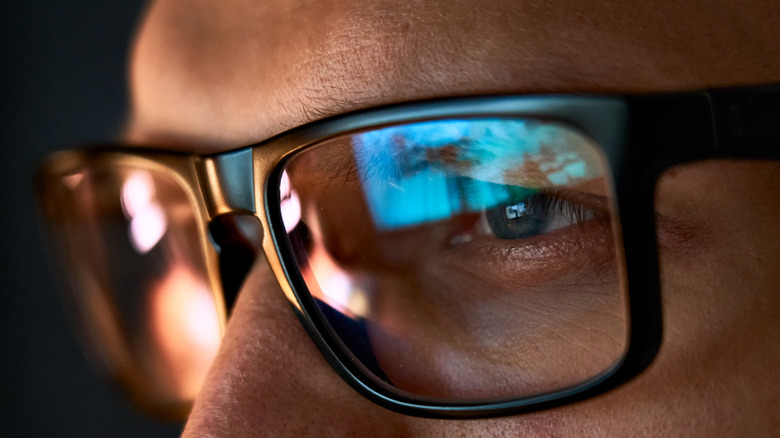Five Ways To Support Your Eye Health
According to MindBodyGreen, your eye health and brain health are intricately linked. In fact, your eyes can't actually see. Just like lenses, eyes capture light but the camera — the brain — is responsible for processing light into images. Likewise, the brain is in control of eye movement. Because of how closely they're connected, issues such as stroke, brain tumors, Alzheimer's, migraines, concussions, autoimmune disorders, and more can be discovered by reading the eyes.
By taking care of the brain, you take care of your eyes and when you take care of your eyes, you also take care of your brain. One of the ways this is done is through adequate nutrition. The eyes are very delicate and vulnerable to oxidative stress and inflammation. For that reason, eating foods that are rich in antioxidants is essential. Make a point to eat 5 cups of brightly colored fruits and vegetables every day, especially those that contain lutein, zeaxanthin, meso-zeaxanthin, and astaxanthin that specifically target eye and brain health.
Hydration plays a significant role in eye and brain health and dehydration can actually trigger a stroke. If your urine is dark yellow, orange, or brown, that's a sign of dehydration. A simple rule of thumb for drinking adequate water is to divide your weight in pounds by 2 and drink that number in ounces. For example, someone who weighs 160 lbs should drink 80 oz of water a day.
How movement, toxins, and blue light impact eye and brain health
You may not have connected exercise to good eye and brain health, but a 2018 study in Eye found that people who make fitness a priority are at lower risk of developing eye diseases like macular degeneration, glaucoma, and diabetic retinopathy. MindBodyGreen adds that exercise can protect against Alzheimer's and other neurodegenerative issues. They recommend 150 minutes of aerobic activity every week.
It's also important to protect your eyes and brain from pollution, cigarette smoke, heavy metals, household chemicals, and mold. Cruciferous vegetables and food that contain a lot of fiber can help your body flush out these toxins, according to MindBodyGreen. Herbs such as turmeric, dandelion root, and milk thistle may also be helpful.
If you've been considering buying a pair of blue-block glasses, your eyes and brain are worth the investment. Blue light is linked to issues such as sleep disturbances, migraines, digital eye strain, and even attention issues. While natural blue light that comes from the sun is important for your sleep cycle, artificial blue light that comes from monitors, screens, and energy-saving light bulbs can be harmful. Swap out energy-saving bulbs for smart bulbs and use light-filtering apps to moderate blue light exposure, suggests MindBodyGreen.


